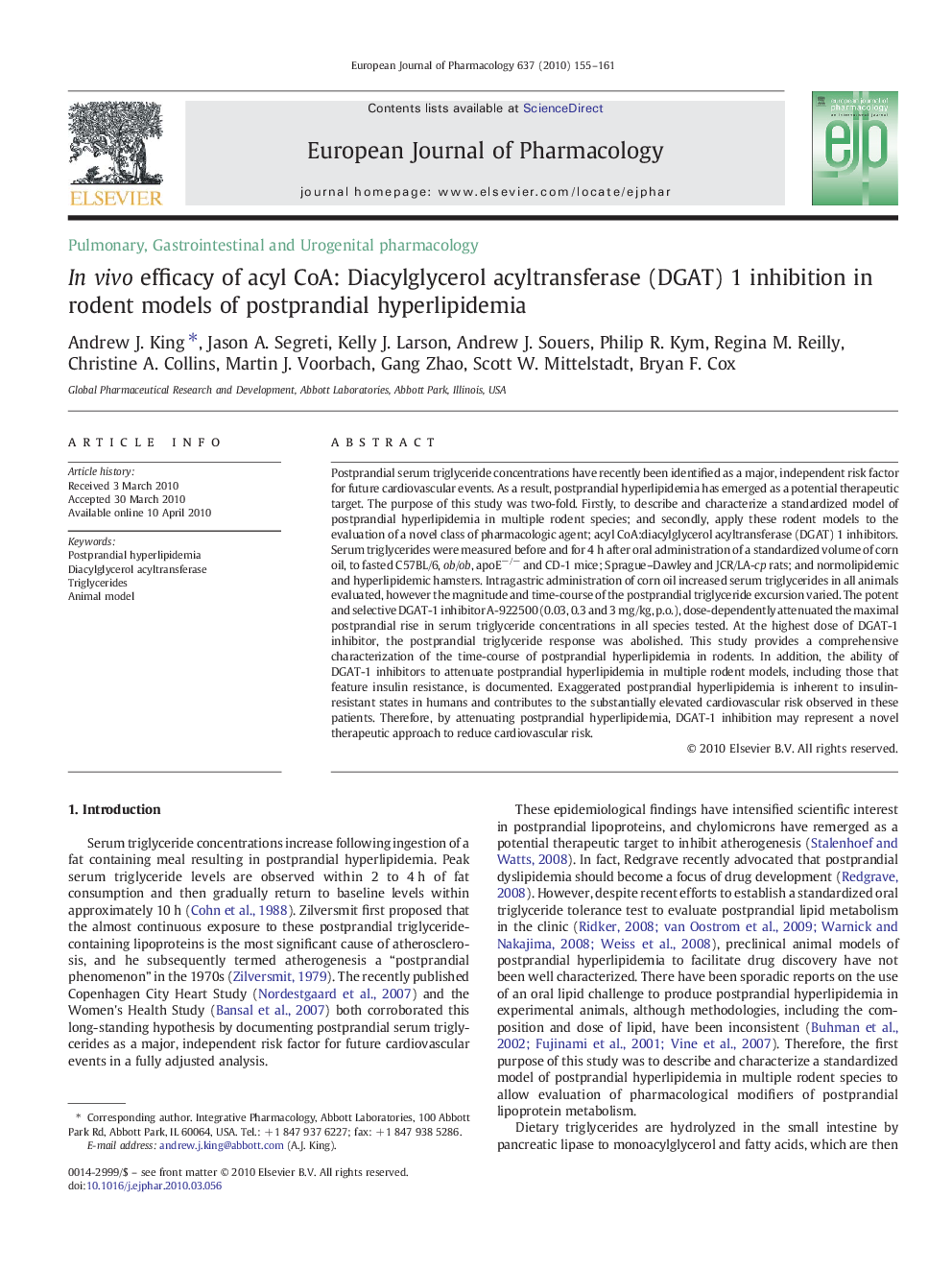| کد مقاله | کد نشریه | سال انتشار | مقاله انگلیسی | نسخه تمام متن |
|---|---|---|---|---|
| 2533487 | 1559056 | 2010 | 7 صفحه PDF | دانلود رایگان |

Postprandial serum triglyceride concentrations have recently been identified as a major, independent risk factor for future cardiovascular events. As a result, postprandial hyperlipidemia has emerged as a potential therapeutic target. The purpose of this study was two-fold. Firstly, to describe and characterize a standardized model of postprandial hyperlipidemia in multiple rodent species; and secondly, apply these rodent models to the evaluation of a novel class of pharmacologic agent; acyl CoA:diacylglycerol acyltransferase (DGAT) 1 inhibitors. Serum triglycerides were measured before and for 4 h after oral administration of a standardized volume of corn oil, to fasted C57BL/6, ob/ob, apoE−/− and CD-1 mice; Sprague–Dawley and JCR/LA-cp rats; and normolipidemic and hyperlipidemic hamsters. Intragastric administration of corn oil increased serum triglycerides in all animals evaluated, however the magnitude and time-course of the postprandial triglyceride excursion varied. The potent and selective DGAT-1 inhibitor A-922500 (0.03, 0.3 and 3 mg/kg, p.o.), dose-dependently attenuated the maximal postprandial rise in serum triglyceride concentrations in all species tested. At the highest dose of DGAT-1 inhibitor, the postprandial triglyceride response was abolished. This study provides a comprehensive characterization of the time-course of postprandial hyperlipidemia in rodents. In addition, the ability of DGAT-1 inhibitors to attenuate postprandial hyperlipidemia in multiple rodent models, including those that feature insulin resistance, is documented. Exaggerated postprandial hyperlipidemia is inherent to insulin-resistant states in humans and contributes to the substantially elevated cardiovascular risk observed in these patients. Therefore, by attenuating postprandial hyperlipidemia, DGAT-1 inhibition may represent a novel therapeutic approach to reduce cardiovascular risk.
Journal: European Journal of Pharmacology - Volume 637, Issues 1–3, 10 July 2010, Pages 155–161